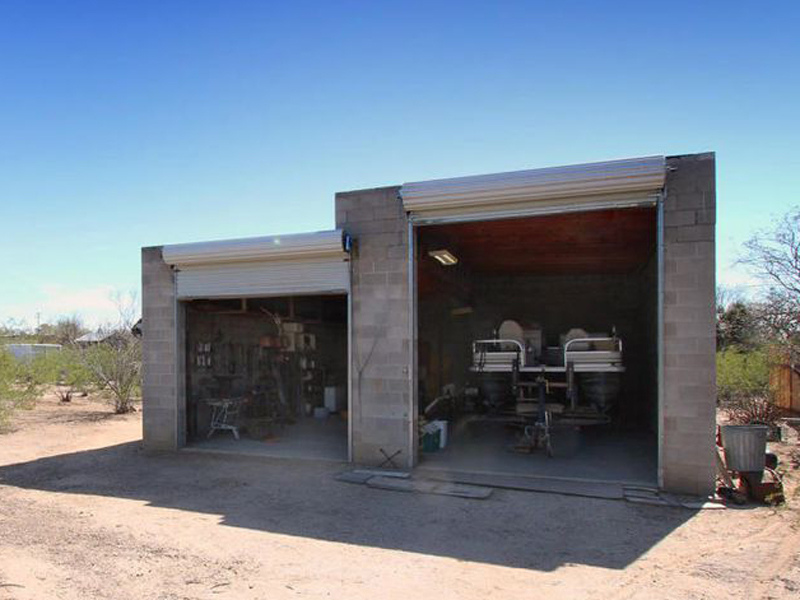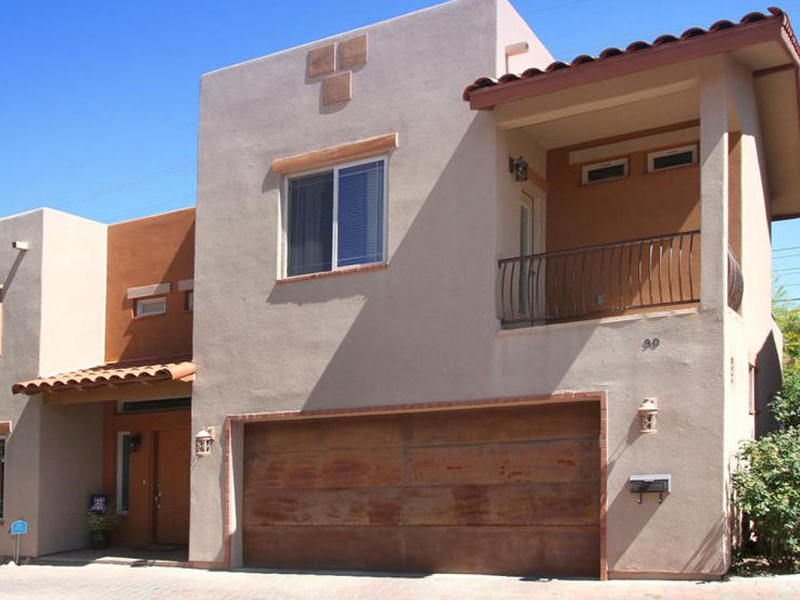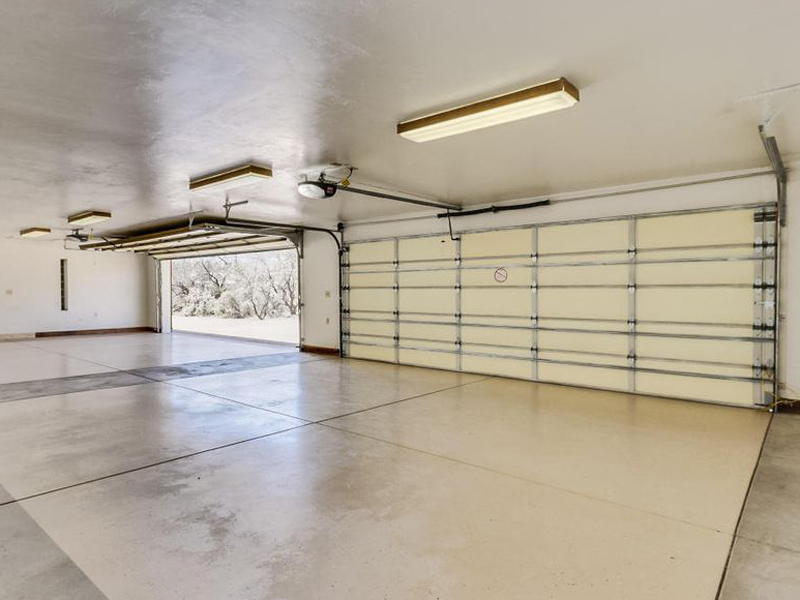Is Your Garage Door Stuck? Below's What to Do First
When your garage door will not open, start with these necessary security checks before trying any kind of repair services. First, make sure no one is standing near the door which automobiles are free from the opening. Search for apparent indications of damages like broken panels, bent tracks, or hanging cable televisions. If you see a snapped spring or drastically harmed parts, stop immediately and call a professional—-- these fixings require specific devices and proficiency to deal with securely.

Check These 6 Points Before Calling an Expert
Prior to presuming you need pricey repairs, go through this quick diagnostic checklist that resolves most garage door troubles:
-
Power source: Validate the opener is plugged in and the outlet is functioning
-
Remote batteries: Change dead batteries in your push-button control
-
Manual lock: Check if a person mistakenly involved the hands-on lock
-
Blockages: Try to find particles obstructing the door's path or sensors
-
Emergency situation launch: Make sure the red emergency cable hasn't been drawn
-
Circuit breaker: Confirm the garage circuit hasn't tripped
These basic checks deal with around 70% of garage door problems without requiring specialist intervention.
10 Typical Factors Your Garage Door Won't Open Up
Understanding why your garage door opener isn't functioning aids you pick the best option. Right here are one of the most constant reasons homeowners encounter:
Dead remote batteries represent the easiest repair—-- when batteries pass away, the remote can not send out signals to the opener. Power interruptions or tripped breakers reduced power to the electric motor. Broken springtimes prevent the door from raising properly and need immediate specialist attention. Sensor imbalance reasons safety systems to block door procedure. Track blockages quit rollers from moving smoothly. Motor overload triggers automatic shutoffs when the opener spots resistance. Limit button troubles puzzle the opener regarding door placement. Wire damages disrupts the training system. Weather-related problems affect door activity throughout severe temperature levels. Component wear from age slowly decreases system performance.
Trouble # 1: Dead Remote Batteries
When your wall switch functions but your remote doesn't, dead batteries are usually the perpetrator. A lot of garage door remotes utilize either 3-volt lithium or 12-volt alkaline batteries. Eliminate the back cover of your remote and check the battery type. Change with fresh batteries and examine the remote. If it still doesn't work, you may require to reprogram it to your opener. Consult your opener's manual for specific reprogramming guidelines, as the procedure varies by manufacturer.
Trouble # 2: Power Supply Issues
Garage door power problems typically originate from loosened links or stumbled circuits. Check that the opener is strongly plugged into its electrical outlet—-- vibration can loosen up connections over time. Check the electrical outlet with one more device to validate it's working. Examine your home's breaker box for tripped circuits, particularly if you've experienced tornados or power changes. GFCI outlets might have tripped and require resetting. If the opener has power however won't react, the concern likely lies elsewhere in the system.
Trouble # 3: Broken or Damaged Springs
Damaged garage door springtimes are among the most hazardous elements to manage. If you hear a loud bang from your garage or notice the door feels incredibly hefty when attempting to raise manually, a spring has actually most likely broken. Torsion springtimes run horizontally over the door, while extension springtimes remain on either side. Never attempt springtime repair work on your own—-- these parts save remarkable tension that can create significant injury or fatality. Expert substitute usually costs $150-$300 but ensures your safety and security.
Problem # 4: Blocked Safety Sensors
Modern garage doors feature safety and security sensing units that protect against closure when items are spotted. These sensors can quit the door from opening up if they're filthy, misaligned, or obstructed by particles. Tidy sensing unit lenses with a soft towel and make certain absolutely nothing obstructs the undetectable light beam between them. Check that sensors are appropriately lined up—-- the majority of have indication lights that show link condition. Sensing unit issues frequently solve with simple cleansing and change.
Issue # 5: Track Obstructions or Damages
Garage door tracks guide rollers as the door moves up and down. Dust, debris, old oil, or little items can jam the system. Check tracks aesthetically and eliminate any blockages with a brush or cloth. Search for damages, bends, or warping that could hinder smooth procedure. Minor track modifications are feasible for useful home owners, however considerable damages requires specialist fixing to stop further problems or safety hazards.
Problem # 6: Garage Door Opener Motor Issues
When the garage door electric motor runs yet the door does not move, a number of concerns could be liable. The motor may be strained and shutting down as a safety measure. Equipment wear, specifically in older systems, can prevent appropriate operation. Chain or belt drive issues impact power transmission. If you listen to unusual grinding, clicking, or humming sounds, stop using the opener immediately. Electric motor repairs typically set you back greater than replacement, particularly for systems over 10 years old.
Detailed Do It Yourself Troubleshooting Guide
Follow this systematic strategy to garage door repairing while prioritizing safety throughout the process:
Step 1: Check the wall surface switch first. If it works but the remote does not, concentrate on remote problems. If neither works, check power supply.
Action 2: Take a look at the hand-operated launch cable. If it's been pulled, the opener is disengaged from the door. Press the trolley back to reconnect.
Action 3: Manually check the door by disengaging the opener and trying to lift the door by hand. It should relocate smoothly and stay in location when half-open.
Tip 4: Inspect noticeable components for damages, paying unique focus to springs, cable televisions, and tracks.
Step 5: Check all safety and security attributes including sensing units, limitation switches, and auto-reverse features.
Step 6: Examination various controls (remote, wall surface switch, keypad) to isolate the issue resource.
Constantly wear safety glasses and work handwear covers when performing evaluations, and never effort repair work on springtimes or high-tension components.
When to Call an Expert vs. do it yourself Solutions

Recognizing when to call a garage door specialist versus trying DIY repairs secures both your safety and your pocketbook. Handle these problems yourself: dead remote batteries, power supply problems, small track cleaning, sensing what to do if garage door won’t close at night unit cleaning and alignment, and fundamental lubrication.
Never ever try these repair services yourself: spring replacement or change, cable television repairs, major track adjustment, electric wiring problems, opener motor substitute, or any repair involving high-tension elements. Expert service technicians have specialized devices, training, and insurance coverage to manage harmful repairs securely.
Think about repair work expenses versus replacement costs, particularly for doors over 15 years of ages. Modern garage doors provide far better safety attributes, power effectiveness, and dependability than older models.
Emergency Garage Door Solutions
When you're stuck to a garage door that will not open up and need instant gain access to, comply with these emergency situation procedures:
Handbook Operation: Draw the red emergency launch cable to disengage the opener. This permits manual operation however needs appropriate strategy to stay clear of injury. Raise the door gradually and uniformly, utilizing leg muscle mass rather than your back. The majority of residential doors evaluate 100-150 extra pounds, making them manageable for most grownups.
Short-lived Solutions: If the door opens up manually however won't stay up, prop it open with sawhorses or clamps—-- never ever utilize your body or cars as assistances. For doors that won't shut totally, make certain the opening is protected if you have to leave.
Emergency situation Solution: Numerous garage door firms provide 24/7 emergency solution for scenarios including safety problems, caught cars, or full system failures. While extra expensive than routine solution phone calls, emergency repairs give immediate solutions when needed most.
Security Warning: What NOT to Do
Garage door security calls for understanding hazardous fixings that should never be attempted by homeowners:
Never ever try to repair springs—-- they save sufficient energy to create deadly injuries when they snap or are improperly dealt with. Don't force a stuck door—-- this can harm the opener, tracks, or door panels, developing extra pricey troubles. Prevent bypassing safety and security functions—-- sensors and auto-reverse devices prevent severe injuries and home damage.
Don't disregard odd sounds—-- grinding, scuffing, or banging noises show troubles that intensify with time. Never ever utilize the door if cords are frayed or damaged—-- the door can fall unexpectedly. Do not try electrical fixings unless you're a qualified electrical expert—-- garage door openers make use of both 120V house current and low-voltage control circuits.

Precautionary Upkeep to Avoid Future Issues
Routine garage door upkeep prevents most usual issues and prolongs system life-span considerably:
Monthly Jobs: Visual inspection of all components, checking auto-reverse security functions, examining and tightening up equipment, and cleansing tracks and sensors.
Quarterly Tasks: Lubing all moving get rid of ideal garage door lube, testing manual operation, and examining weather securing.
Yearly Tasks: Specialist evaluation and tune-up, spring change if needed, and opener upkeep including belt or chain adjustment.
Seasonal Tasks: Getting ready for weather condition extremes, checking insulation, and readjusting opener settings for temperature changes.
Consistent upkeep expenses far less than emergency situation repair work and makes sure dependable operation year-round.
Garage Door Will Not Open Frequently Asked Questions
Why will not my garage door open with the remote however collaborates with the wall surface switch?
This normally suggests dead remote batteries, signal disturbance, or the requirement to reprogram the remote. Inspect batteries first, after that consult your opener manual for reprogramming instructions.
Can I by hand open my garage door if the power is out?
Yes, draw the red emergency launch cable to disengage the opener, after that raise the door by hand. Be planned for the door's full weight and lift with correct strategy to stay clear of injury.
Exactly how do I know if my garage door spring is broken?
Indicators include a loud bang from the garage, the door feeling extremely hefty when lifting manually, visible gaps in the spring coils, or the door only opening a couple of inches before stopping.
Is it secure to utilize my garage door if it will not open right?
No, partial procedure shows mechanical problems that can aggravate instantly. Stop utilizing the door and have it examined by a professional to stop additional damages or injury.
What should I do if my garage door opens up but will not close?
Inspect safety sensors for blockages or imbalance, take a look at the tracks for debris, and test the auto-reverse function. If these do not fix the issue, seek advice from a specialist.
Just how much does it set you back to deal with a garage door that will not open up?
Prices differ widely depending upon the issue: battery substitute ($5-$10), professional medical diagnosis ($50-$100), spring replacement ($150-$300), or opener replacement ($200-$500).
Can weather affect my garage door's capacity to open up?
Yes, severe cold can enlarge lubricating substances and affect steel elements, while heat can trigger growth issues. Most problems resolve as temperatures normalize, however relentless concerns might require professional focus.
Why does my garage door open a couple of inches after that quit?
This usually shows broken springs, limit switch troubles, or track obstructions. The opener's security attributes quit procedure when resistance is detected, stopping damage to the motor or door.
Get Professional Assist for Facility Problems
When DIY troubleshooting doesn't settle your garage door issues, professional technicians give the proficiency and devices needed for secure, enduring repair work. Certified experts identify problems precisely, make use of manufacturer-approved components, and give warranties on their job.
Specialist solutions include: comprehensive system evaluations, springtime and cable television substitute, opener repair and substitute, track positioning and substitute, electric troubleshooting, and emergency situation service telephone calls.
What to anticipate: in advance pricing, accredited and insured service technicians, same-day solution for lots of repairs, and follow-up maintenance recommendations.
A lot of garage door business use free quotes for major repair services and can offer instant remedies for urgent issues impacting home security or lorry gain access to.
Getting Your Garage Door Working Again
A garage door that will not open up doesn't have to destroy your day or break your spending plan. Beginning with easy troubleshooting steps like examining power, replacing batteries, and analyzing for noticeable obstructions. Lots of troubles have fast DIY options that recover regular procedure within minutes.
However, recognize when professional help is necessary—-- specifically for spring-related concerns, electrical issues, or facility mechanical failures. Trying hazardous repair services on your own runs the risk of severe injury and commonly creates a lot more expensive problems.
Routine maintenance prevents most garage door issues and ensures trustworthy procedure for several years ahead. When problems do occur, address them immediately to stay clear of even more costly repairs and maintain your home's protection and ease. Whether you require a basic battery substitute or full system overhaul, services exist to get your garage door working smoothly once more.